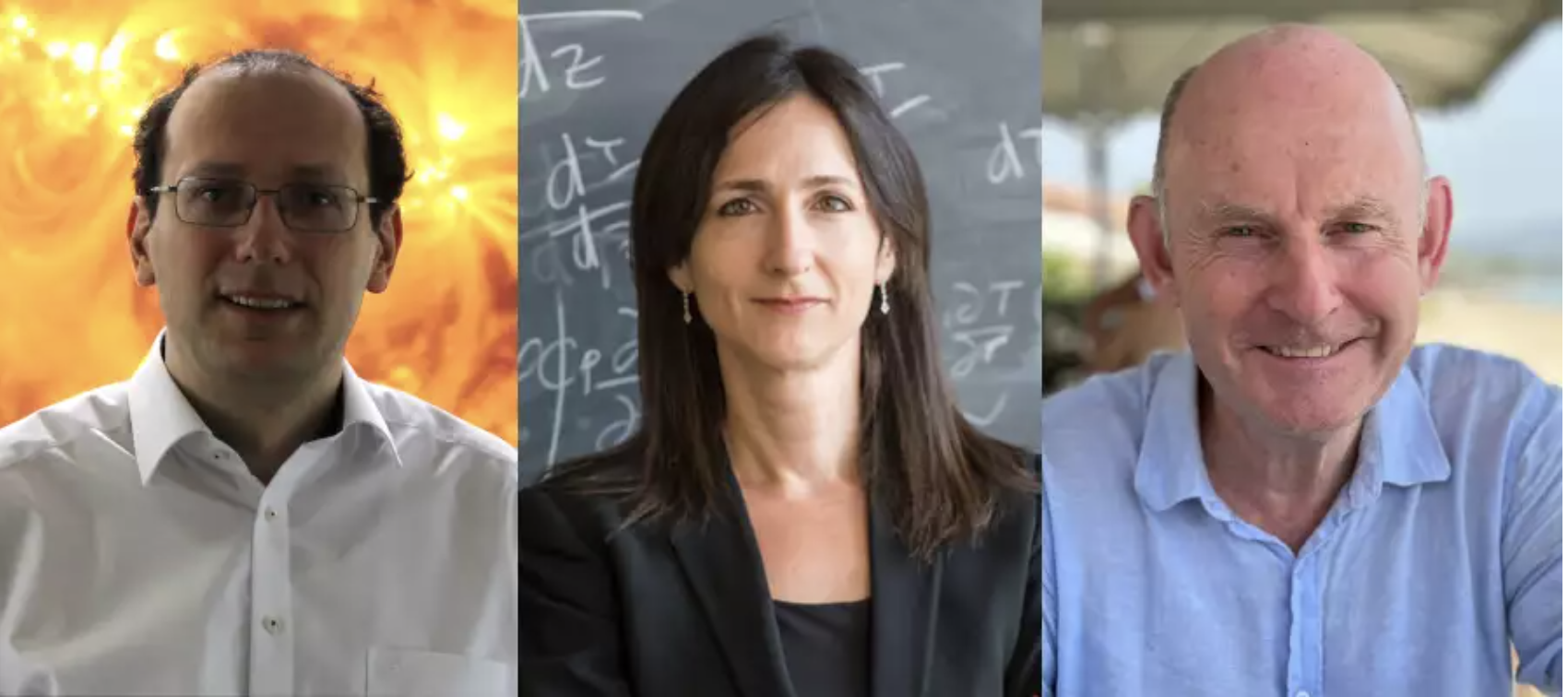Are we alone in the Universe? New funding to REVEAL answers
In the search for life-friendly exoplanets, researchers from the University of St Andrews, Germany and the USA join forces in a pioneering €9.5M European Research Council funded project.
The joint research project REVEAL (Revealing Signatures of Habitable Worlds Hidden by Stellar Activity) brings together leading experts in exoplanet and stellar activity from the University of St Andrews School of Physics and Astronomy in collaboration with the Max Planck Institute for Solar System Research (MPS, Germany), the Massachusetts Institute of Technology (USA) and the Space Telescope Science Institute (USA) to overcome this problem. Their goal is to unravel which traces in the starlight point to a life-friendly exoplanet and which are an expression of the star itself. In the long run, REVEAL may help answer one of humanity’s oldest questions: Are we alone in the Universe?

One of the biggest obstacles in the search for exoplanets like Earth are their stars. The brightness and wavelengths of the light emitted by a star may vary greatly, making it difficult for even the most advanced telescopes to detect evidence of Earth-like planets and their life-friendly atmospheres.
The main reason for these difficulties lies in the nature of the stars themselves. Like the Sun, they do not always shine in the same way: dark star spots and bright regions cover their surfaces with changing coverage; and the surface pattern created by rising hot plasma from a star’s interior also varies constantly.
“For the last 15 years we’ve had the instrumental capability to detect Earth-like planets orbiting Sun-like stars, but stellar activity obscures the signatures of planets and their atmospheres,” explained Professor Andrew Collier Cameron, from the University of St Andrews and one of REVEAL’s three Principal Investigators. “Our project will enable us to disentangle the faint signatures of planets from the background turmoil of their host stars’ atmospheres,” he adds.
Dr Alexander Shapiro of the Max Planck Institute for Solar System Research (MPS) added: “Especially in the case of small, Earth-like planets, stellar activity obscures the traces left by a planet and its atmosphere in the starlight,” he adds.
To solve this problem, the REVEAL project aims to first understand stellar behaviour in detail. In a first step, the researchers intend to model stellar activity for a wide variety of stars in computer simulations. In a second step, they will calculate how this activity affects the light that telescopes capture from these stars. Only in this way is it possible to truly understand real observational data and separate which signals within it arise from exoplanets and their atmospheres and which are due to the star itself.
To accomplish this challenging task, REVEAL brings together leading experts from both the field of stellar activity and exoplanet research. While the research group led by Professor Andrew Collier Cameron from the University of St Andrews works on the detection and characterization of exoplanets using Earth-based spectrometers, the group led by Professor Sara Seager from the Massachusetts Institute of Technology (MIT) in the USA searches for evidence of life-friendly atmospheres in observational data from NASA’s James Webb Telescope. Dr Alexander Shapiro’s group at MPS is responsible for the stellar simulations using sophisticated magnetohydrodynamic models. Additional experience in observing stellar activity is contributed by the partner group led by Dr Jeff Valenti of the Space Telescope Science Institute in the United States.
“Only by combining expertise in stellar and exoplanet physics can we get closer to finally concluding one of the most exciting quests in modern astronomy – the quest for habitable worlds outside our own Solar System,” said Dr Alexander Shapiro.
ERC Synergy Grants are reserved for particularly ambitious research projects that are so large in scope and require such diverse expertise that they cannot be handled by a single research group alone. Out of a total of 395 applications, only 37 projects were selected for funding in the current funding round, receiving a total of €395 million to address some of the world’s most formidable research problems spanning a range of scientific disciplines. The funding helps groups of outstanding researchers to pool different skills, knowledge, and resources to push the frontiers of our knowledge.
The ERC Synergy Grant scheme is part of the EU’s research and innovation programme, Horizon Europe.
The University of St Andrews will receive €2.65m of the ERC Synergy Grant. This award is the third ERC Synergy Grant for the University of St Andrews. St Andrews was a Co-PI organisation for the SOMICS (2013, €2.47m) and WHOLESUN (2018, €2.22m) projects.
ERC Synergy Grants
The Synergy Grant scheme is aimed at a group of two to maximum four Principal Investigators (PIs) working together and bringing different skills and resources to tackle ambitious research problems. One Principal Investigator per research group can be hosted or engaged by an institution outside of the EU or Associated Countries.
About the ERC
The ERC, set up by the European Union in 2007, is the premier European funding organisation for excellent frontier research. It funds creative researchers of any nationality and age, to run projects based across Europe. The ERC offers four core grant schemes: Starting Grants, Consolidator Grants, Advanced Grants and Synergy Grants. With its additional Proof of Concept Grant scheme, the ERC helps grantees to bridge the gap between their pioneering research and early phases of its commercialisation. The ERC is led by an independent governing body, the Scientific Council. Since November 2021, Maria Leptin is the President of the ERC. The overall ERC budget from 2021 to 2027 is more than €16 billion, as part of the Horizon Europe programme, under the responsibility of European Commissioner for Innovation, Research, Culture, Education and Youth, Iliana Ivanova.
Issued by the University of St Andrews Communications Office.